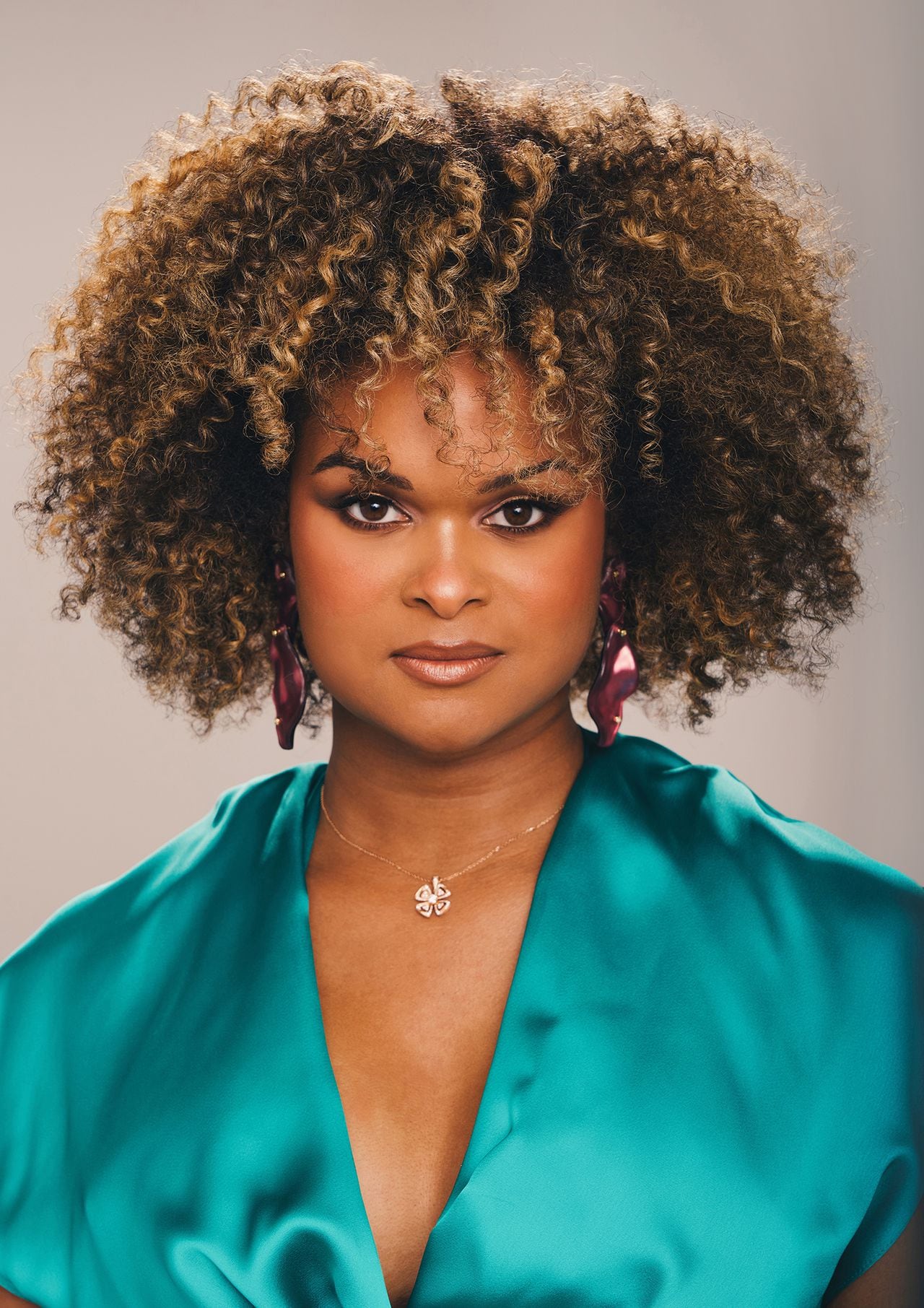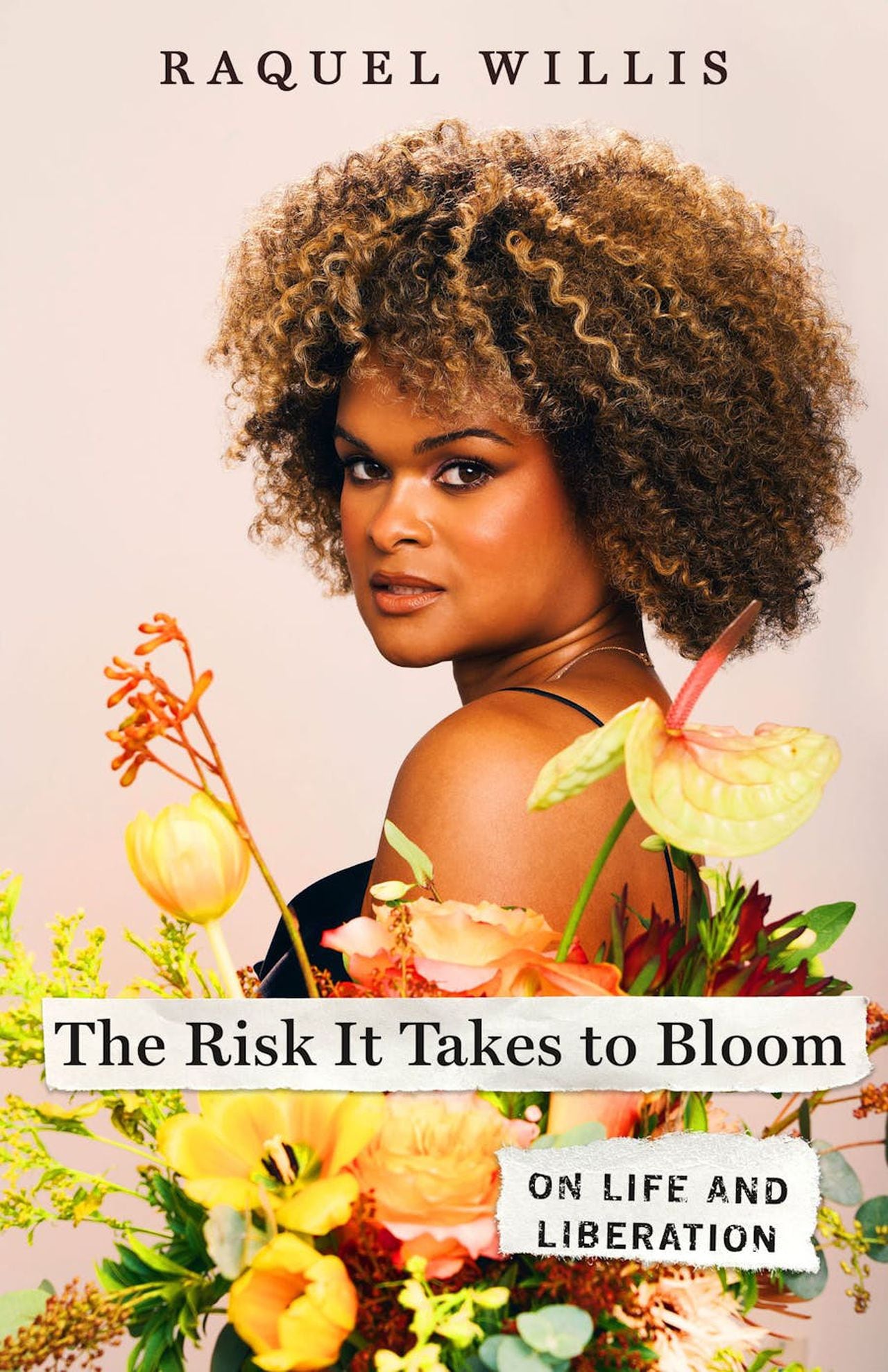Raquel Willis lays out a roadmap to liberation in âThe Risk It Takes To Bloomâ
“I’d long felt I had to prove to my family and the world that my queerness and transness weren’t liabilities,” – Raquel Willis, The Risk It Takes To Bloom: On Life and Liberation
How did Raquel Willis go from navigating the limits of toxic masculinity as a Southern Black queer child in Augusta, Georgia, to building a writing and activism career built on passion, centering empathy, and collective liberation as an unapologetic Black trans woman?
She blossomed, Willis details in her debut memoir, The Risk It Takes To Bloom.
Inspired by a line from Elizabeth Appell’s poem RISK, the project began to sprout in 2020, on the horizon of Willis’ 30s amid the pandemic lockdown and social justice movements reinvigorated by the murder of George Floyd and other Black folks.
At this time, Willis was forced to reflect on her feelings about how the world shaped her. As she confronted systems meant to oppress her, societal standards of beauty, and perceived worthiness. The text she birthed makes readers feel as if they are peering into a big sister’s diary, the confessions serving as a roadmap to liberation.
“Blooming means regardless of the struggle, or maybe despite the complexity, we make it through to the other side, understanding that we deserve our wholeness, stories, and joy,” she tells Reckon.
Willis says anyone going through a transition in life and waiting to bloom should find a space to fully express themselves. That could be a physical space or within the pages of a journal, sketchbook or voice notes app. She is inspired by a mantra of her possibility model, writer, director, producer and transgender rights activist Janet Mock: “tell your story to yourself.”
The Risk It Takes to Bloom: On Life and LiberationSt. Martin’s Press
The importance of grace was the biggest lesson Willis learned while writing The Risk It Takes To Bloom. “Of course, grace for other folks — that’s where forgiveness lies. And, for myself, that’s where healing lies. I’ve learned that naming and uncovering insecurities and anxieties is a part of the liberatory process, and those things I’m fearful to share can be freeing once I do,” she explains to Reckon.
Drawing inspiration from the epistolary styles of writers like Ta-Nehisi Coates and James Baldwin, Raquel includes letters to loved ones and trancestors between chapters of her experiences to reflect on their impact on her life and journey to liberation.
“The letters came about because I found it difficult to write as myself in those particular points. I wanted to insert some of the wisdom I’ve gleaned. So, the letters take a different tone because they show how my mindset has evolved since, which felt necessary,” Willis says.
Two especially heart-rending chapters for Willis to write were a letter to her father and another recounting the loss of her grandmother and what it was like to see her mom in her own transition from wife to widow. According to Willis, they required her to contemplate the meaning and expectations of love and legacy.
“I had a lot of anguish over turning my back on those expectations of their thoughts of legacy. But I think a good runner-up is the sexual harassment after bottom surgery in chapter 23 or chapter 13 about desire and validation, where I’m essentially talking to the trade honey. And it’s a different kind of reckoning with relationships,” she tells Reckon.

Award- winning writer, activist, and debut author Raquel WillisTexas Isaiah
In the future, she wants to write and uncover more about love and relationships as a Black trans woman in this age, tackling the conversation around how elusive not only the idea of fairytale love, but baseline love (flirting, dating, etc.), feels for many Black trans women, especially beyond fetishization. As a young trans woman blossoming into womanhood, the glimpses into that dynamic I appreciated the most as if receiving validation of my own feelings from a wise big sister. That is the beauty of this memoir, as it allows readers to interrogate and reflect on their journeys through life and the path to liberation.
For Willis, liberation means all of us “being able to fully delve into self-expression without fear.” She believes we get to be masters of our narratives, the drivers of our own destinies not restricted by white supremacist, cis-hetero, patriarchal capitalist and ableist ideas.
“Liberation for all requires understanding that if someone else gets to shine, [experience] joy, or have some void filled in their life, then that doesn’t mean there’s a detriment to my experience,” she says.
After a decade as an activist and community organizer, this idea of liberation was just the other side of the coin in expanding her definition of community. For Willis, community is a couple of different things. The top definition of community involves people with shared values, particularly in social justice and the world of collective liberation.
“Even within that, as a Black trans woman, I know I’m also in communities where we share identity, and we don’t necessarily all share the same values. But the one I prioritize the most is communities of shared values,” she tells Reckon. “If we’re ever going to come to some coalition worth its snuff, we’re going to have to [accept] that all of us have the capacity to be both oppressed and oppressors.”
Ultimately, Raquel sees The Risk It Takes To Bloom as a bridge between previous and future Black trans folks and those who believed and will, in collective liberation. This memoir is her contribution to documenting what it has been like to be Black and queer and trans in this generation.
“I hope trans, non-binary, gender non-conforming and queer readers feel seen, less isolated, and encouraged to create their accounts of their experiences to share with the world. For cis folks to seek out more trans and queer voices, understanding our perspective is necessary and can help unlock things in them. Most of all, I hope it encourages folks to take more risks to bloom and shatter expectations,” she says.
The Risk It Takes To Bloom is available now on shelves and online for purchase. Check out this excerpt from the memoir in which Raquel pays tribute to Chyna Gibson.
